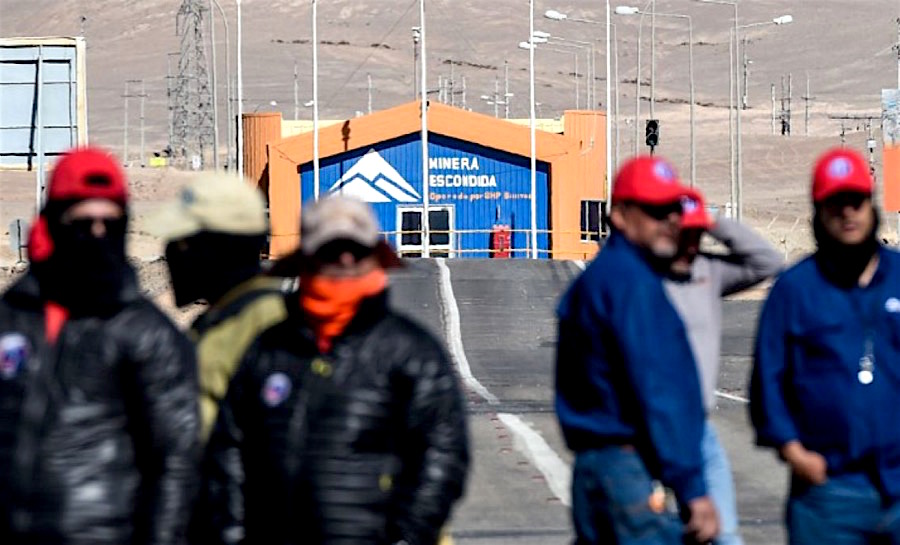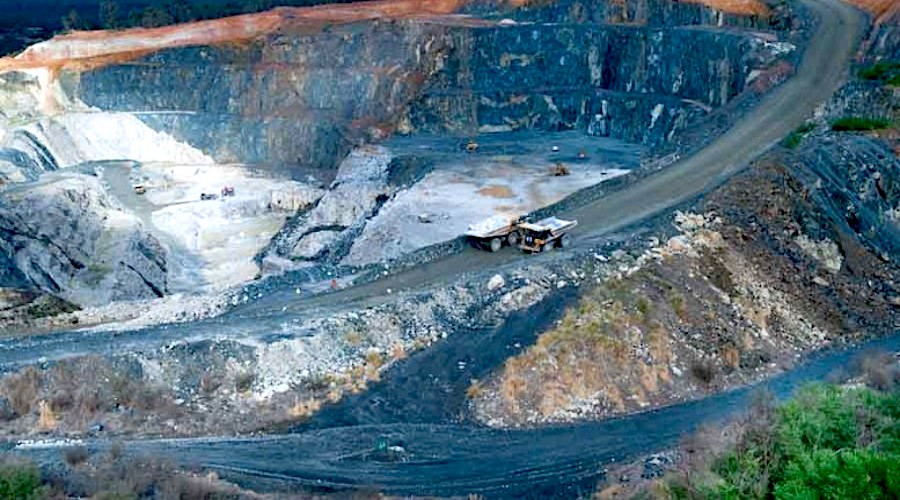BHP asks for government mediation in talks at Chile’s Escondida

Miner BHP said on Monday that it had formally requested a period of government mediation with the union at its Escondida copper mine in Chile, the world’s largest, just hours before workers threatened to begin a strike.
The union had earlier asked the company to negotiate by 10:00 a.m. local time (1400 GMT), but said in a statement later on Monday that it had begun preparing for a strike.
BHP had not commented on the matter until mid-afternoon.
“We have asked authorities for obligatory mediation because we want to reach an agreement and because we know that no one wants a strike,” said Patricio Vilaplana, BHP vice president for corporate affairs, in a statement.
The government must now set a date for the mediation to begin. After that, negotiations extend for 5 days.
Workers last week voted to reject the company’s final wage offer and approved a strike, but Chilean law allows either party to call for a period of government mediation, a last effort to reach an agreement ahead of a walk-off.
Last year, a 44-day strike at the mine jolted global copper markets and slowed economic growth in the South American country, which is the world’s top copper producer.
BHP’s final contract offer two weeks ago included a signing bonus of about $18,000 and a 1.5-percent boost to salaries with increases for inflation.
But the union had asked for a signing bonus of almost double that offered by the company, and had requested a salary increase of 5.0 percent, leaving a wide gap between the two sides.
Despite the mounting tensions at Escondida, copper prices slid on Monday as investors worried about the damage to global economic growth from the trade dispute between the United States and its trading partners.
Chile increased its copper production to 2.83 million tonnes in the first six months of this year, a 12.3 percent gain on the same period the previous year, Chilean copper commission Cochilco said on Monday.
State-owned Codelco produced 875,300 tonnes of copper from January to June, a 2.9 percent year on year gain, while mining company Escondida, controlled by BHP, produced 647,300 tonnes, a 97.4 percent on the same period last year which saw output hampered by a lengthy strike.
(Reporting by Dave Sherwood; editing by Clive McKeef)
{{ commodity.name }}
{{ post.title }}
{{ post.date }}




Comments